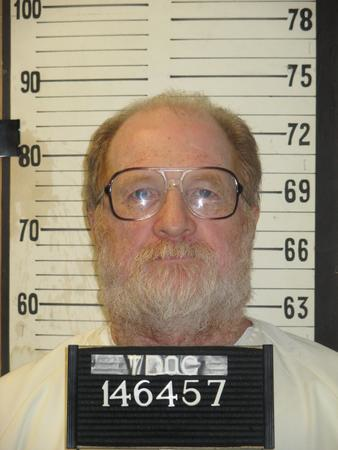
Harold "Wayne" Nichols
Two Christian men face each other across hundreds of court documents and news stories.
Harold “Wayne” Nichols, sentenced to death in 1990 for the rape and murder of 21-year-old Karen Pulley, is scheduled to die by lethal injection on Thursday, Dec. 11, as Tennessee’s third execution in seven months. His clemency petition rests with Gov. Bill Lee, the devout Franklin businessman who has helped restart Tennessee’s death penalty despite documented death penalty protocol violations at TDOC, Tennessee’s botched 2022 scheduled execution of Oscar Smith and court battles that continue today.
Nichols, 13 months Lee’s junior, has spent more life on death row than not. He has appealed throughout that time to slow or stop his execution or convert his sentence to life in prison. In that time he earned forgiveness from his victim’s mother, Ann Pulley, mediated by their shared Christian faith. Sources close to the governor have also indicated that he is personally uncomfortable with the governor’s singular power to stop — and conversely, to condone — state killings of prisoners.
After botched protocols in the execution of Oscar Smith, the state pauses to reconsider its methods
Tennessee’s executions have also been mired in mismanagement and secrecy, leading to a new TDOC chief, a quasi-independent investigation, public protests and appeals both moral and legal. This pressure also seems to be gaining momentum, its urgency underscored by increasing scrutiny over lethal injection locally and more executions by a handful of states taking place nationally.
Attorneys filed two requests on Nichols’ behalf in recent weeks. First, an attempt to open up aspects of the state’s lethal injection protocol to public view. The filing contests the state’s reluctant response to a public records request filed by Megan Kerrigan, an investigator with the Federal Defenders Services of East Tennessee, who sought more information about procurement and procedures related to the lethal injection executions of Byron Black and Oscar Smith earlier this year.
On Nov. 11, Nichols’ attorney Stephen Ferrell shared that Nichols, faced with the electric chair or lethal injection, instead declined to choose his method of execution altogether. The state defaults to execution by lethal injection.
“The Tennessee Department of Correction has not provided enough information about Tennessee’s lethal execution protocol for our client to make an informed decision about how the state will end his life,” Ferrell says in a statement. “It is our fervent plea that the state pause Mr. Nichols’s execution until the courts finally have the opportunity to fully review the current lethal injection protocol and the intrinsic problems with it are resolved. This process has already begun for several condemned inmates and should be completed before the state experiments any further.”
Nichols’ attorneys filed an official clemency request the same day addressed to Gov. Lee and his chief legal counsel Erin Merrick. They ask for life without parole instead of execution. His Christianity, his record as an “exemplary prisoner,” a traumatic upbringing and post-conviction reconciliation with Ann Pulley feature prominently in the 23-page document, in which Nichols takes full responsibility for his crime. Attorneys offer his story as proof positive of rehabilitation and redemption. To Lee, they pose a question: Who might receive clemency if not this man? Lee has not responded.
On Nov. 10, Tennessee’s three Catholic bishops released a joint statement calling for an immediate moratorium on the death penalty and its eventual abolition under state law. They cite Nichols’ execution and ground their thinking in Christian principles, also stating that supporting the death penalty is incompatible with opposing abortion. An online petition addressed to Lee supporting an immediate stay on Nichols’ execution has garnered more than 25,000 signatures.







